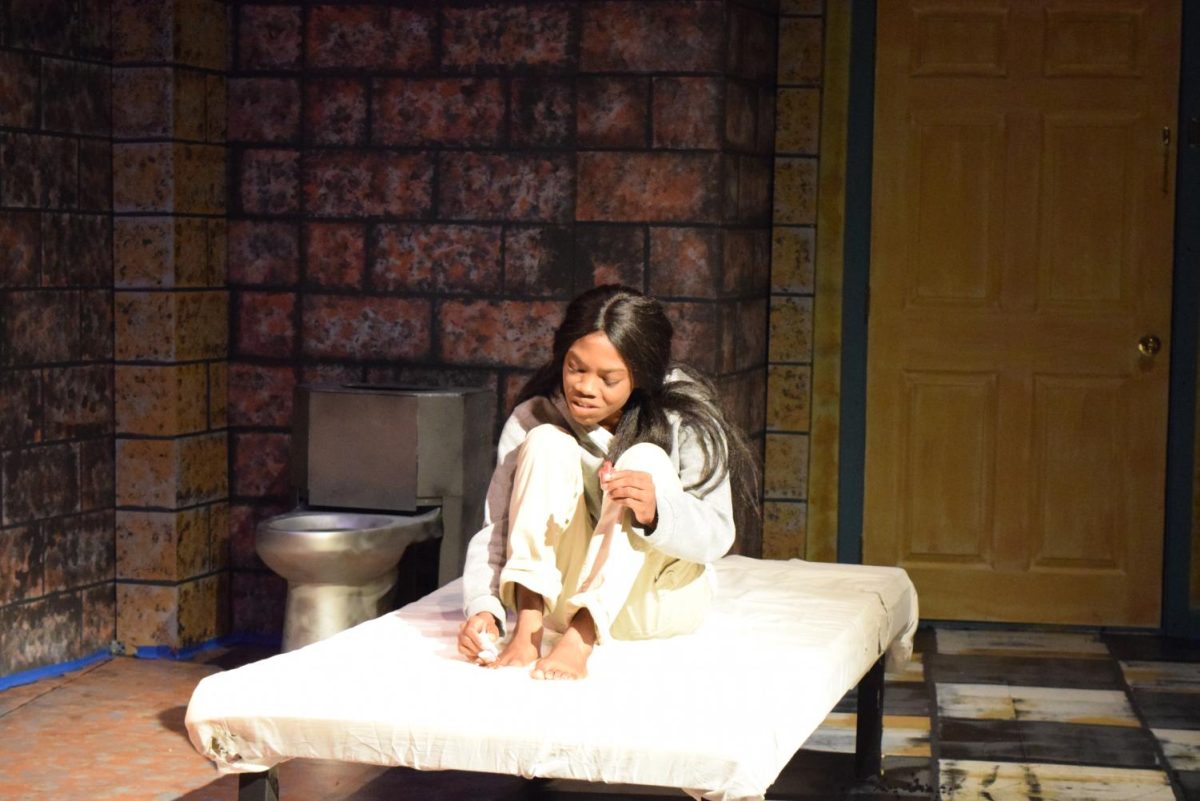“Getting Out” reflects modern-day problems that ex-convicts still face
Theater and digital media major Lenora Callins plays young Arlie, acting as a shadow and flashback of Arlene today, trying to figure out which direction to take her life next. “Getting Out” opened on Friday.
Friends and families fill the Black Box Theatre at the opening night of the play “Getting Out” on Friday.
“Getting Out,” a play originally produced by novelist, playwright and screenwriter Marsha Norman, is about Arlie, a female prisoner who was recently released and returns to her home in Kentucky, only to find her past experiences are haunting her, making it difficult to settle back in.
“This play brings to light real problems that people are facing in the world,” said Cheri Fortin, the department chair of Theater and the director of the play. “It’s timely, it’s relevant, and although it’s written in 1979, it’s still an ongoing issue today.”
From gloomy-green lighting and a realistic jail cell, the audience was already feeling the tension of the setup before the play even began.
The play starts with a scene of young Arlie sitting in her jail cell, conversing with a prison guard and sharing stories about her life before being put in prison.
Already, violent language was used to portray Arlie’s experience in prison, giving the play a sense of authenticity.
Shortly after being released from prison, she begins referring to herself as Arlene, in hopes that it’ll help her forget her old, misbehaving and trouble-making self.
Fortin said the Theater Department was aware that the play has some scenes that may be uncomfortable for some people, which is why the Women Escaping A Violent Environment program was involved. WEAVE provides crisis intervention services for students, faculty and staff who have experienced sexual or domestic violence and stalking.
“We’ve partnered with WEAVE and have slips that guests can fill out and talk to them about at any time if they feel any type of way,” said Fortin.
Not only was the message behind this play powerful, but students performing in this play have an even stronger connection to it. From memorizing their own lines to late-night practices, students like 29-year-old theater and digital media major Lenora Callins said she put a lot of time and dedication into this play.
Playing the lead role of Arlie, Callins said this was the most challenging role she’s ever took on.
“I feel like I relate to Arlene so much because I’ve already lived her story and I can connect to who she was before and who she is now,” said Callins.
Callins said that growing up, she was a foster child and had gone down the wrong road with the wrong people, just like Arlene.
“I go in over my head alot but I have to put what happen to me in real life aside every time I step on stage and just learn to stay present,” Callins said.
It was a challenge to be in character for students like 22-year-old theater and mathematics major Jake Barber.
“I am definitely not my character,” said Barber, who plays the prison guard Evans.
Yessica Rodriguez, a 21-year-old theater and humanities major, plays the role of young Arlie’s principal.
“It was hard because in one of my scenes I had to argue with Arlie and get physically pushed down but I think we have it down,” said Rodriguez.
The play ended with Arlene somewhat finding comfort in herself and in her home, leaving the audience with curiosity and in awe.
“They really brought the play to life,” said Annie Morales, a 26-year-old English major who watched the play during opening night. “It’s one of the best ones yet.”

